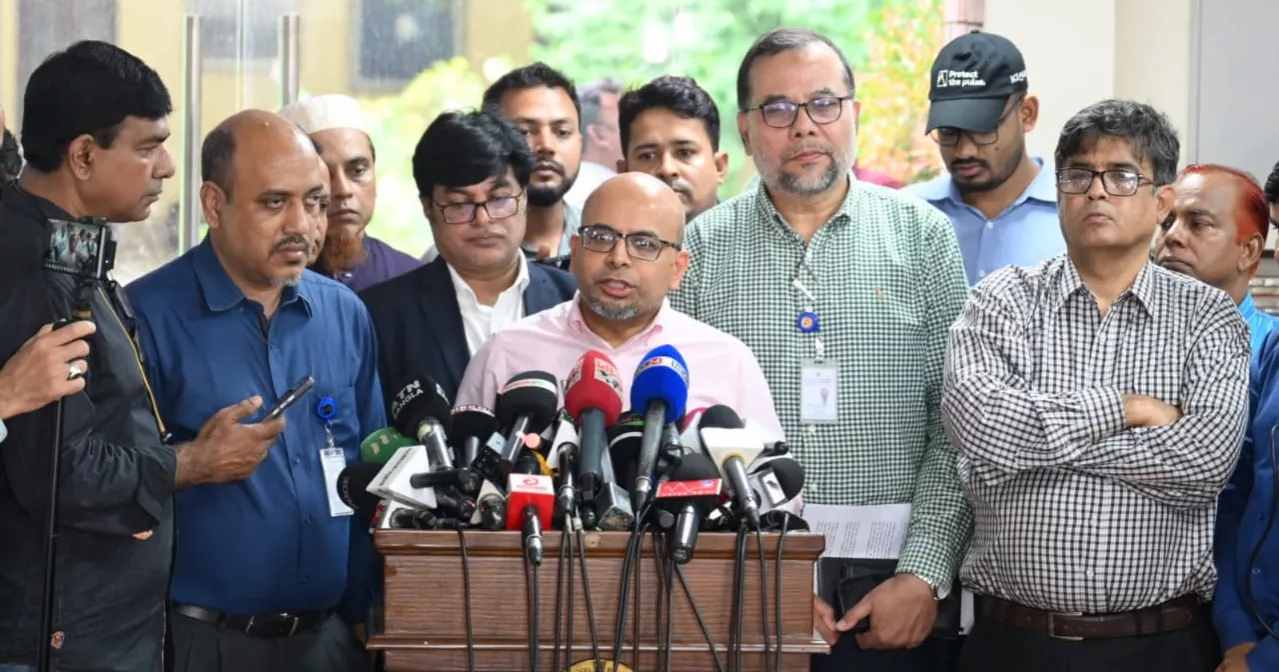Staff Correspondent
Published:2025-07-08 01:11:24 BdST
Govt to break syndicate of 'autocrats and mafias' in telecom sector: Taiyeb
The government is formulating a new telecom policy to dismantle the syndicate of "autocrats and mafias" that has long gripped the country's internet and telecom sector, said Faiz Ahmad Taiyeb, Special Adviser to the Chief Adviser in charge of the Ministry of ICT and Telecommunications.
Speaking at an emergency press conference at the Foreign Service Academy in the capital on Sunday afternoon, Taiyeb said the sector remains under the influence of a vested group protected by past autocratic regimes.
"There are licensing systems in Bangladesh that don't exist anywhere else in the world. By exploiting these, syndicates and mafias have looted hundreds of crores of taka from the telecom sector," he said.
Taiyeb claimed that some companies obtained licenses by investing only Tk 5–10 crore but made up to Tk 400 crore annually.
"Over the past 15 years, the previous government issued licenses to more than 3,400 such entities. The government only receives about 50 percent of the revenue; the rest is embezzled. The new telecom licensing policy aims to end this looting," he said.
Taiyeb also pointed out that obtaining telecom licenses involved navigating through 7–8 steps, which gave rise to layers of middlemen. "These intermediaries have essentially imposed illegal tolls. When we try to take action, we face false accusations and criticism," he said.
Dismissing claims that the new policy will harm local companies, Taiyeb said, "Those with valid licenses will not be stripped of them. But if they want to renew, it will have to be under the new policy. Those rejecting the new framework are essentially trying to legitimise the corruption of past regimes."
On the country’s internet quality, he said the service is still substandard. “Until recently, 70 percent of Bangladesh’s internet depended on India. Many internet providers brought in bandwidth illegally from abroad.”
To improve the situation, he said, “We’ve made it mandatory that at least 50 percent of the internet must come through the country’s submarine cable. We’ve discussed with the Bangladesh Telecommunication Regulatory Commission (BTRC) about introducing a Key Performance Indicator (KPI) system to assess internet quality. Providers offering poor service will be penalised.”
The government has also urged internet providers to raise the minimum broadband speed from 5 Mbps to 12–15 Mbps. “Let’s be clear—5 Mbps cannot be called broadband anymore,” he added.
Regarding issues with Bangladesh Telecommunications Company Limited (BTCL), Taiyeb alleged that many private companies do not want BTCL to survive in the market.
“They’re upgrading their own infrastructure while BTCL lags behind. If BTCL’s fiber network upgrade project worth Tk 300 crore isn't implemented, the entire amount will be wasted.”
He said massive corruption occurred in the ICT and telecom sectors under previous administrations. To address this, separate white paper committees have been formed for each sector.
“Many are upset because we’ve decided to award tenders only to competent companies, so they’re spreading misinformation about this ministry,” he claimed.
Taiyeb assured that no new ICT projects have been initiated under the current administration, and past project irregularities are being addressed in cooperation with the Anti-Corruption Commission (ACC).
“All suggestions regarding the new policy are being reviewed seriously. The government is working to finalise the policy through a fully democratic process,” he added.
Taiyeb reaffirmed the government’s commitment to restoring transparency and accountability in the telecom and ICT sectors. “We are not here to protect vested interests—we are here to protect the people’s interests,” he said.
“This new policy is not about control; it's about reform. It’s about breaking the chains of corruption and building a fair, efficient, and future-ready digital Bangladesh,” Taiyeb added.
Unauthorized use or reproduction of The Finance Today content for commercial purposes is strictly prohibited.


